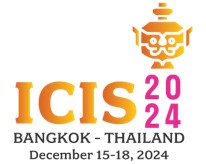Loading...
Paper Number
1223
Paper Type
Complete
Abstract
Referral reward programs are a popular word-of-mouth marketing strategy, but determining the optimal reward size remains a challenge. While larger rewards incentivize referrals, they can negatively impact new customer profitability. This study addresses this trade-off by examining the combined effect of reward size on both new and existing customer profitability. We conducted a field experiment and applied a novel DEA-PSM-OLS framework to analyze data from a digital content company. Our findings reveal that a moderate reward size outperforms both small and large rewards, suggesting that maximizing referral program effectiveness requires a balanced approach that considers the value generated by both new and existing customers.
Recommended Citation
zhou, BAOHUAN; WANG, PINGFAN; ZHU, YAOZONG; Zhu, Jiantao; and Liang, Liang, "Reward More Can Referral Better? Combined New and Current Customers" (2024). ICIS 2024 Proceedings. 7.
https://aisel.aisnet.org/icis2024/digital_emergsoc/digital_emergsoc/7
Reward More Can Referral Better? Combined New and Current Customers
Referral reward programs are a popular word-of-mouth marketing strategy, but determining the optimal reward size remains a challenge. While larger rewards incentivize referrals, they can negatively impact new customer profitability. This study addresses this trade-off by examining the combined effect of reward size on both new and existing customer profitability. We conducted a field experiment and applied a novel DEA-PSM-OLS framework to analyze data from a digital content company. Our findings reveal that a moderate reward size outperforms both small and large rewards, suggesting that maximizing referral program effectiveness requires a balanced approach that considers the value generated by both new and existing customers.
When commenting on articles, please be friendly, welcoming, respectful and abide by the AIS eLibrary Discussion Thread Code of Conduct posted here.



Comments
01-DigitalPlatforms